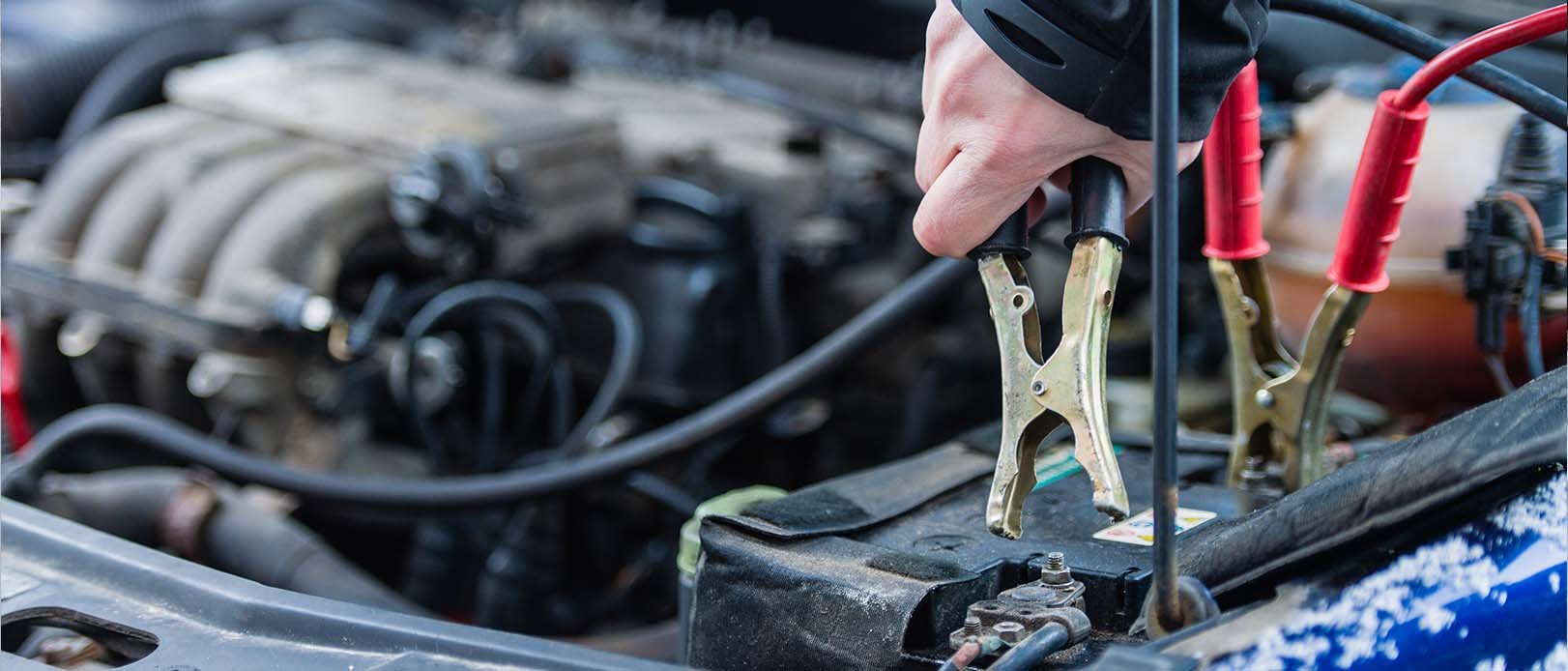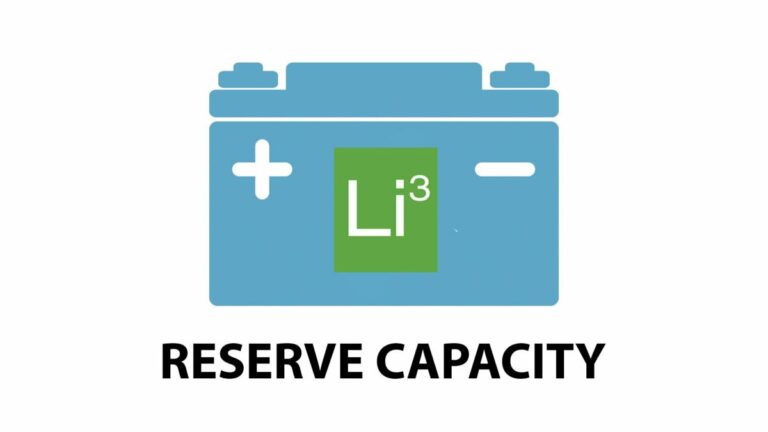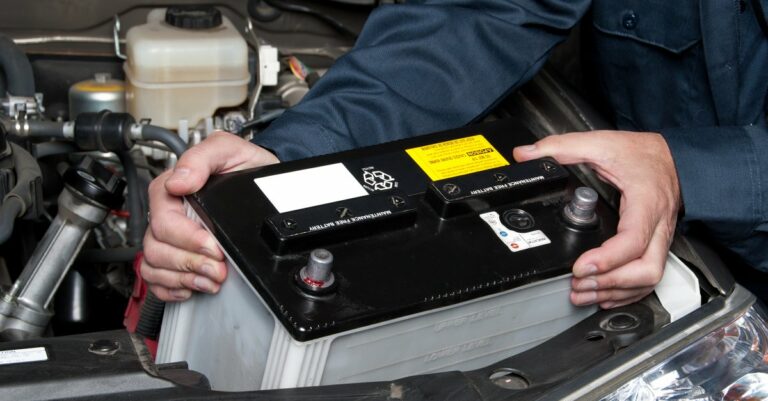How to Prevent Car Battery from Dying in Extreme Cold Temperatures?
How to Prevent Car Battery from Dying in Extreme Cold Temperatures? Winter can be harsh, especially on your car’s battery. Nothing is more frustrating than being stranded in freezing temperatures due to a dead battery.
But fear not! I have the solution for you. Today, we will discuss how to prevent car battery from dying in extreme cold temperatures. By following a few simple tips and tricks, you can ensure your battery stays strong and reliable, no matter how chilly it gets outside. So, let’s dive in and explore how to keep your battery alive all winter long.
How to Prevent Car Battery from Dying in Extreme Cold Temperatures?
Extreme cold temperatures can be harsh on your car battery, causing it to lose its charge and potentially fail when you need it most. Cold weather reduces the battery’s capacity and makes it harder for the engine to start. However, there are several steps you can take to prevent your car battery from dying in extreme cold temperatures. In this article, we will explore various methods to help you safeguard your battery and ensure reliable starting even in freezing conditions.
1. Park Your Car in a Sheltered Area
Parking your car in a sheltered area, such as a garage or carport, can provide significant protection against the freezing cold. By shielding your vehicle from the elements, you help maintain a higher temperature around the battery, reducing the strain on it. If you don’t have access to a covered parking spot, consider renting a storage unit or using a car cover to provide some level of protection.
Insulate the Battery
To further protect your car battery from extreme cold, consider insulating it with a battery blanket or heat wrap. These inexpensive accessories wrap around the battery, providing a layer of insulation to help retain heat. Battery blankets are specifically designed to generate heat, ensuring the ideal operating temperature for the battery.
Use a Battery Heater
Another option to prevent your car battery from freezing is to use a battery heater. These devices warm up the battery and keep it at an optimal temperature, even in extremely cold conditions. Battery heaters are typically connected directly to the battery and have a thermostat to regulate the temperature automatically.
2. Keep Your Battery Maintained
Regular maintenance is key to prolonging the life of your car battery, especially during colder months. Here are some steps you can take to ensure your battery remains in good condition:
Check the Battery Charge
Use a digital multimeter to check your battery’s charge regularly, especially before the arrival of cold weather. A fully charged battery should read around 12.6 volts. If the voltage is significantly lower, your battery may require recharging or replacement.
Clean the Battery Terminals
Over time, corrosion can build up on the battery terminals, impeding the flow of electricity. Inspect the battery terminals regularly and clean off any dirt or corrosion using a mixture of baking soda and water. Be sure to disconnect the battery cables before cleaning.
Tighten Loose Connections
Loose or corroded battery connections can lead to poor electrical contact and prevent your battery from charging properly. Check the battery terminals and cables for any signs of looseness and tighten them if necessary. Ensure the connections are clean and secure.
Test the Battery’s Cold Cranking Amps (CCA)
The cold cranking amps (CCA) rating indicates a battery’s ability to start an engine in cold temperatures. If your battery is old or has a low CCA rating, it may struggle to start your car in extreme cold. Replace the battery if the CCA rating is not sufficient for your climate.
Charge the Battery Regularly
If your car sits idle for an extended period, regularly charge the battery using a battery charger or a smart trickle charger. This helps maintain the battery’s charge and maximizes its lifespan.
3. Reduce Battery Drain
During cold weather, it’s important to minimize battery drain to preserve its charge. Here are some ways to reduce battery drain in extreme cold temperatures:
Avoid Excessive Electronics Usage
Electrical accessories such as heated seats, defrosters, and high-powered sound systems can put a strain on the battery. Minimize their use, especially when the engine is not running, to conserve battery power.
Limit Short Trips
Frequent short trips don’t allow the battery to fully recharge, leading to a gradual loss of charge over time. If possible, combine multiple short trips into a longer one to give the battery ample time to recharge.
Turn Off Lights and Accessories
Always double-check that all lights and accessories, including headlights, interior lights, and portable chargers, are turned off before leaving the car. Leaving them on overnight can drain the battery significantly.
Avoid Cold Starts
Starting your car in extremely cold temperatures puts additional strain on the battery. If possible, use block heaters or engine warmers to preheat the engine before starting, reducing the load on the battery.
4. Consider a High Cold Cranking Amps (CCA) Battery
If you frequently experience extremely cold temperatures, consider upgrading to a battery with a higher cold cranking amps (CCA) rating. A battery with a higher CCA can deliver more power on cold starts, improving the chances of a successful ignition.
5. Use a Battery Charger or Maintainer
In extreme cold weather, it can be beneficial to use a battery charger or maintainer to keep your battery fully charged. These devices connect to the battery and provide a small, constant charge, ensuring the battery remains at optimal levels.
Trickle Chargers
Trickle chargers deliver a slow, steady charge to the battery, preventing it from losing its charge during long periods of inactivity. These chargers are ideal for keeping batteries topped up in cold conditions.
Battery Maintainers
Battery maintainers are similar to trickle chargers but can also analyze and condition the battery. They provide an optimized charging cycle, preventing overcharging and extending the battery’s lifespan.
6. Consider a Battery Insulation Kit
For added protection against extreme cold temperatures, you can invest in a battery insulation kit. These kits provide additional insulation and create a barrier between the battery and the cold air, helping to maintain a higher temperature around the battery.
7. Keep Your Car Battery Clean
Regularly cleaning your car battery and ensuring it’s free from dirt and debris can help prevent corrosion and extend its lifespan. Remember to be cautious and follow safety precautions when working around the battery.
7.1 Battery Cleaning Steps:
- Disconnect the battery cables (negative cable first).
- Mix a solution of baking soda and water and apply it to the battery terminals and cables using a brush.
- Scrub the terminals and cables gently to remove any corrosion.
- Rinse the battery with clean water and dry it thoroughly.
- Apply a thin layer of petroleum jelly or dielectric grease to the terminals to prevent future corrosion.
- Reconnect the battery cables (positive cable first).
8. Replace an Old Battery
If your car battery is more than three to five years old, it may be more susceptible to failure in extreme cold temperatures. Consider replacing an old battery with a new one before winter arrives to ensure reliable starting.
9. Use Engine Oil Suitable for Cold Weather
Using engine oil with the appropriate viscosity for cold weather conditions can make a difference in starting your car in extreme cold. Thinner oils, such as 5W-30 or 0W-30, flow more easily in cold temperatures, reducing the strain on the battery and starter motor.
10. Consult a Professional
If you’re unsure about the condition of your car battery or need assistance with winter maintenance, consider consulting a professional mechanic. They can perform a battery inspection, provide recommendations, and help address any issues to ensure your battery remains in top condition.
By following these tips and taking proactive steps to protect your car battery, you can greatly reduce the risk of it dying in extreme cold temperatures. Remember, a well-maintained battery is essential for reliable starting and optimal vehicle performance in any weather condition. Stay prepared and keep your battery in top shape to face the winter season with confidence.
How to prevent a dead car battery in the extreme cold
Frequently Asked Questions
How can I prevent my car battery from dying in extreme cold temperatures?
Extreme cold temperatures can be harsh on car batteries, but there are several precautions you can take to prevent them from dying. Here are some tips:
What can I do to maintain my car battery’s health during winter?
To maintain your car battery’s health in winter, make sure to keep it clean and free of corrosion. Park your car in a garage or use a battery blanket or insulation wrap to keep it warm. Additionally, regularly check the battery’s charge level and consider using a trickle charger to keep it charged during long periods of inactivity.
Are there any specific precautions I should take before the winter season?
Prior to the winter season, it is advisable to have your car battery inspected by a professional. They can check its capacity and recommend a replacement if necessary. It is also essential to clean any corrosion on the battery terminals and ensure they are tightly connected.
What should I do if my car battery dies in extremely cold weather?
If your car battery dies in extremely cold weather, you can try jump-starting the vehicle using jumper cables and another car’s battery. Alternatively, you may call for roadside assistance or use a portable jump starter device to start your car.
Can extreme cold temperatures permanently damage my car battery?
Extreme cold temperatures can indeed damage a car battery. Freezing temperatures can cause the electrolyte solution inside the battery to freeze and expand, potentially cracking the battery case and rendering it irreparable. It is essential to take precautions to prevent such damage.
Is it helpful to warm up my car before driving in extreme cold?
Warming up your car before driving in extreme cold weather can be beneficial for various reasons, including preserving the battery’s charge. However, it is not necessary to warm up the car for an extended period. Allowing the engine to idle for a few minutes to circulate the oil and warm up the internal components is generally sufficient.
Final Thoughts
In conclusion, taking steps to prevent a car battery from dying in extreme cold temperatures is essential to ensure optimal performance and avoid the inconvenience of a dead battery. By regularly inspecting and maintaining the battery, such as cleaning the terminals and checking the fluid levels, owners can increase its lifespan and overall reliability. Additionally, utilizing battery insulation or a battery blanket can provide protection from freezing temperatures. Lastly, minimizing battery-draining activities like using electronics when the vehicle is not running can help preserve battery power. By following these proactive measures, car owners can greatly reduce the risk of experiencing a dead battery in extreme cold temperatures.



